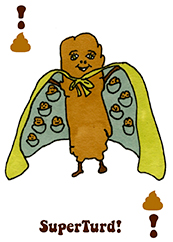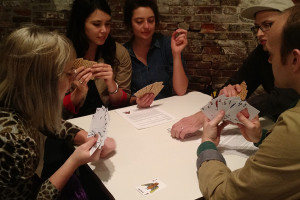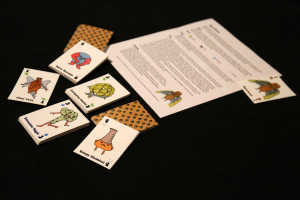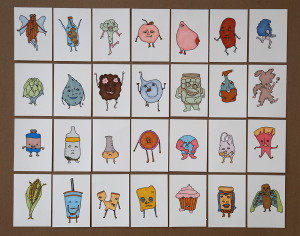 SuperTurd is a card game and part of the Shareable Biome project designed to spur conversation about the effect of diet and environment on our microbiome. Our microbial cells outnumber us 10 to 1 making us more microbe then human in some unexpected ways and our gut gardens, which connect our internal and external environment, crave diversity.
SuperTurd is a card game and part of the Shareable Biome project designed to spur conversation about the effect of diet and environment on our microbiome. Our microbial cells outnumber us 10 to 1 making us more microbe then human in some unexpected ways and our gut gardens, which connect our internal and external environment, crave diversity.
FMTs exemplify the sort of transmutation of waste that is integral to the implementation and sustenance of liveable ecologies. In The Pasteurization of France, Bruno Latour described microbes as an invisible, ageless force that at times has shown itself more powerful than humanity. The Bubonic Plague was no doubt a massive confrontation with this force, a kind of World War 0 where humanity lost spectacularly (at least in Europe). The trauma of the plague’s devastation might still be repressed within us. The children’s game where players link hands in a circle, chant “ring around the rosie”, and all fall down on the ground reminds some of Boubonic Plague symptoms and issues a warning about its spread. What if the game is more than vestigial plague trauma but a kind of sociobiological defense mechanism encouraging the sharing of germs to build up immature immune systems? This game play seems to be a healthy counterpart to the paranoid use and even abuse of antibiotics. Our Shareable Biome game SuperTurd is meant to seduce people into exchanging bacteria through playing cards while learning about ecology via the playful characterizations of actors (foods, medicines, etc.) affecting microbial diversity. Players can compete to avoid getting cards that reduce diversity and strive to receive a SuperTurd which replenishes points if their microbiome becomes dangerously depleted.


